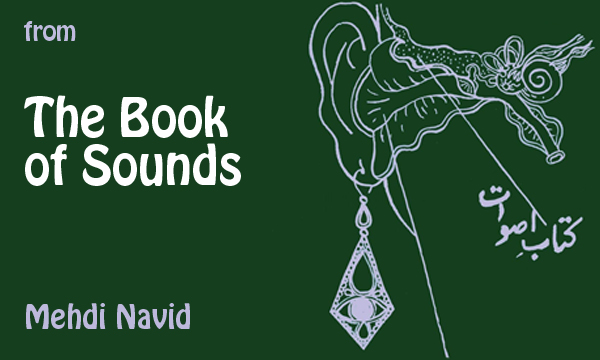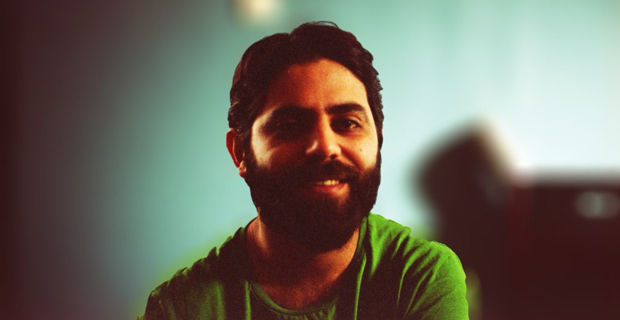
1
The novel starts on the stairs of a passenger bus, coming to contact with Anis’ shoes out of the blue. We have to be really careful here, in describing the period of time elapsed, as the shoes come to contact with each stair. In each contact, the sounds around the bus become more vibrant and speed up, but the contact itself is dim and slow; it doesn’t hurt the ear. But we stay right here. There is much noise in the air, and we focus on the brief conversations between the passengers and the crew; most of the conversations are around the destination, when the bus would leave, and the passengers’ luggage. From the last stair, where Anis’ shoes twirl on to get to her seat, to where Anis’ hands take off her backpack in order to push it in the \\\ 12 \\\ | storage compartment above her head, we do not see anything; not even her eyes scanning others as they are scuttling through the narrow aisle between the seats. We see the comfort of her body spreading against the seat. Registering the light inside the bus is of utmost importance here. The sounds, too… less important, though. Then, all is soaked in white.
2
Anis’ backpack glides on the bed, all the way to Anis’ chin and then, her look. The sound of gliding may not matter in describing the setting, but we have to be careful about Anis’ eyelids, opening and closing, specifically, the closing of the eyelids… Anis’ notseeings. At one with Anis’ look, we see the small room and a bunk, Anis and the backpack now unzipped, and Anis’ hand, as if eternally groping. Nothing comes out of the backpack, ever, Anis’ eyes are closing, the lids become less, slower. Night.
3
Anis’ eyes, on a cold, late afternoon, follow people and walls. She is supposed to go inside the publishing company. She, Anis, has edited a book.
Anis’ hands, in the manager’s office, do not have anything to do but to talk. We do not see the manager’s mouth; we just hear that he is happy and pleased with Anis visiting. A conversation takes shape between them, about work. Anis’ lips, during the conversation, are calmly restless to be somewhere else. The conversation, however short, has to be written in a manner that conveys dimness and slowness; the atmosphere is not cold at all, but the restlessness and anticipation have to be perfectly described. The door squeaking when Anis’ feet exit.
(It seems that the location of the publishing company matters, particularly for the following scenes: the building is located in front of a big motor vehicle overpass. Under it, there are a few bookstores, and somehow, they have formed a bookstore block. The building itself is old and the publishing company is lodged on the second floor. The stairs, all the way up, are made of granite, still preserving their old identity. Yet, the door and the setting inside do not carry a trace of time. Everything is brand new: the paint on the walls, the desks and chairs, and even the blinds and windows. The only thing that stands out in this modern setting is the squeaking of the doors. But it seems that the noise doesn’t bother anyone, or else, they would have them oiled; the hinges.)
4
Anis’ wavering steps, when she enters the editing office, should convey to the reader that Anis has already worked here for a week before coming to the conclusion that her talent is being wasted here and that she cannot attend to her own concerns any longer. And that is why Anis has left the company after making excuses, announcing to the manager that her father wanted her to go back to Shiraz, and now that she has finished school, he doesn’t want her to work at Tehran anymore. The manager has tried to calm Anis down and tell her to listen to her father, because her father has her best interests at heart. But we also know that Anis has been desperate for the money she has been making at this job in order to stay in Tehran and attend to her own business: writing. However, Anis returns to Shiraz and accepts an editing job offered to her by the publishing company in order to keep bread on the table and to do what she likes.
After the wavering steps of Anis enters the office, Mr. Mozdarani gets up and smiling, asks her for a souvenir, without greeting her. Anis’ hands touch the solid surface of the wooden desk she has worked at for a week, and then, Anis’ bottom places itself on the chair behind the desk. And Anis’ parched lips along with her hand, now lifted up from the surface of the desk, say that they have brought masqati, only for the manager. Mozdarani, as if offended, leaves the office and goes to the manager and picks up the masqati box; probably with the excuse of offering it to all the employees. And he does that, too. Then, he comes back to Anis, but he doesn’t offer anything to her. Anis’ eyes, shocked from Mozdarani’ gesture in snatching the masqati box from the manager, stay at the bottom of the eye sockets, but Anis’ lips are searching for somewhere else, so they bring up the search for a new editing job, so that they can get out of there, as soon as possible, in one piece.
Mozdarani has thick lips, but when he speaks, it is as if they are lazy and don’t move that much, meaning that they are not seen. Only the lines on his face, and his eyes are gorged with blood . Anis’ ears realize that he would not give the next available job to her, because he, Mozdarani, leaves everything to “later”. Anis’ eyes follow the sound of a crow, sitting right behind Mozdarani across the window, on a tree. Mozdarani, voice is loud, but Anis knows that her eyes should be content with the sound of the crow, and let the time pass.
Excerpt from The Book of Sounds by Mehdi Navid, Translated by Tina Rahimi, 2018)

Born in 1981 in Kermanshah and brought up in Tehran, Mehdi Navid is a writer, translator and editor best known for his translations of Beckett and Brautigan. Determined to pursue a literary career at an early age, “I attended Houshang Golshiri’s literary criticism and book review courses at the newly-founded Karnameh Magazine,” says Navid; “I was sixteen or seventeen and there I decided that literature would be my only profession.” He has been working as an editor and book evaluator of many publishing houses in Tehran. His debut novel, The Book of Sounds, was released rather independently in 2012 in Persian, and then in English by The Operating System in 2018.

Leave a Reply